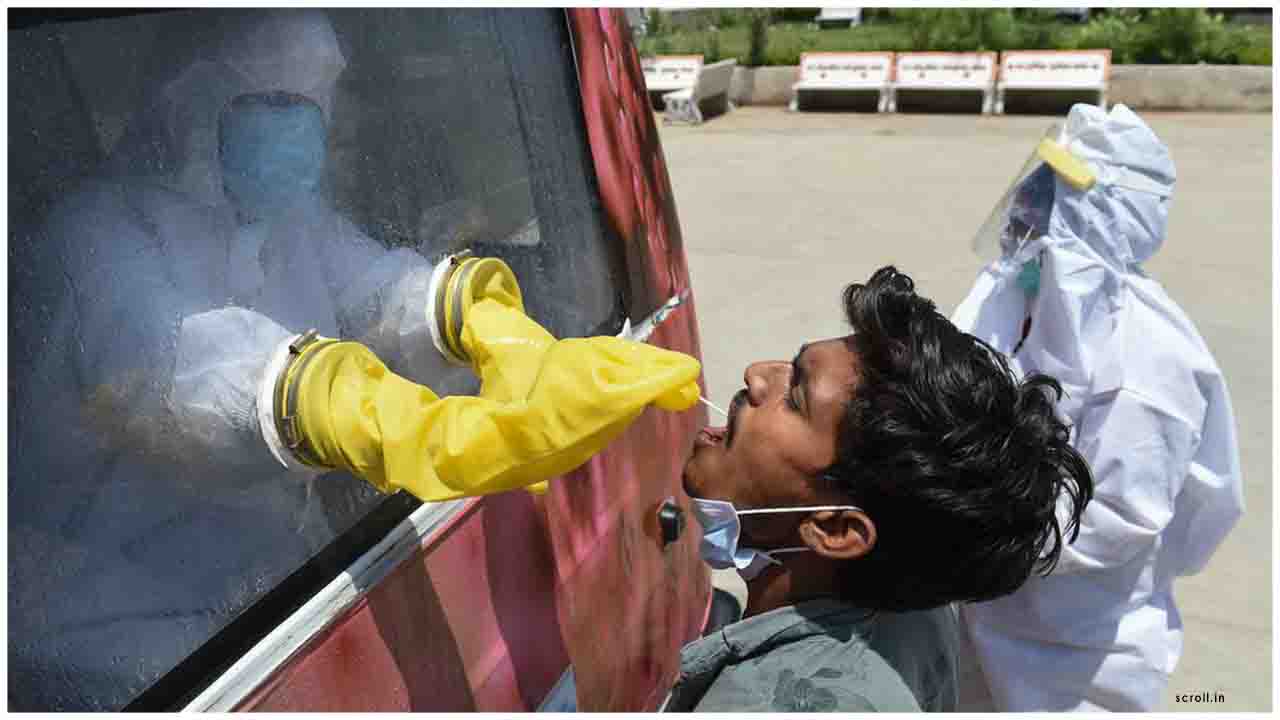Bihar tested a record one lakh 40 thousand 931 COVID-19 samples in the last 24 hours. Principal Secretary Pratyaya Amrit said, this is the highest number testing in the country in a single day.
Over 35 ,71,000 tests have been conducted in the state so far. Recovery rate has improved to 88 percent which is 11 percent more than the national average.
1,24,976 people have been recovered from coronavirus so far and 16,451 patients are undergoing treatment in various hospitals.Total number of COVID-19 cases mounted to 1,42,156. 728 people have died due to Coronavirus in the state so far. Patna remained a hotspot with 21,833 positive cases followed by 6,226 in Muzaffarpur and 5,782 in Bhagalpur.
Meanwhile, ontinuing the spree of conducting more than 10 lakh tests per day from the last two days, India has witnessed an unprecedented surge in daily testing today.
Over 11.7 lakh (11,72,179) tests were done in the last 24 hours. With this achievement, the cumulative tests are more than 4.5 crore (4,55,09,380).
This demonstrates an exponential increase in the daily COVID-19 testing in the country. From conducting merely 10 tests per day on 30th January, the daily average has crossed more than 11 lakhs today.
India’s daily testing numbers are one of the highest in the world. Such high levels of testing on a sustained basis over a period of time in widespread areas enables early diagnosis, and in turn facilitates seamless isolation and effective hospitalisation. This eventually leads to lower mortality rate. Higher numbers of testing also subsequently result in lowered positivity rate.
This surge in testing has been made possible by an equally speedy expansion in the testing lab network across the country. India has today 1623 labs in the country; 1022 labs in the government sector and 601 private labs. These include:
• Real-Time RT PCR based testing labs: 823 (Govt: 465 + Private: 358)
• TrueNat based testing labs: 678 (Govt: 523 + Private: 155)
• CBNAAT based testing labs: 122 (Govt: 34 + Private: 88)
Also, state-of-the-art high throughput machines including Cobas 6800/8800 are installed at 5 sites: ICMR-Rajendra Memorial Research Institute of Medical Sciences, Patna; ICMR-National Institute for Cholera & Enteric Diseases, Kolkata; National Centre for Disease Control, Delhi; ICMR-National Institute for Research in Reproductive Health, Mumbai; and ICMR-National Institute for Cancer Prevention & Research, Noida. These can test around 1000 samples per day with minimum human intervention.
The testing capacity was augmented gradually with RT-PCR is the gold standard test in the phase-1 covering Large cities / Urban areas, followed by Molecular assays with short turn-around-time at the district level in the second phase. In phase-3, Antigen tests are recommended in containment zones and hospital tests where no molecular tests are available.

 Recovery rate improves in Bihar
Recovery rate improves in Bihar








.jpg)
.jpeg)










.jpeg)



.jpg)






.jpg)


